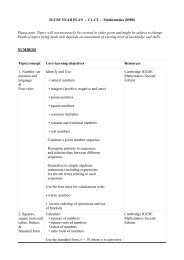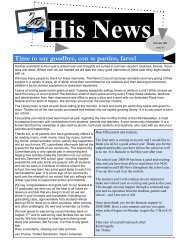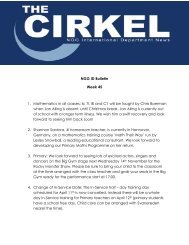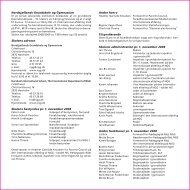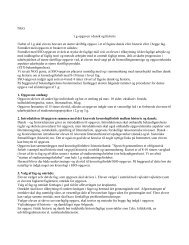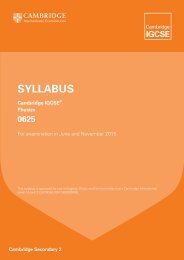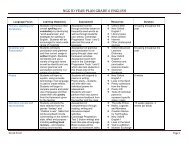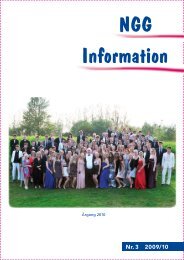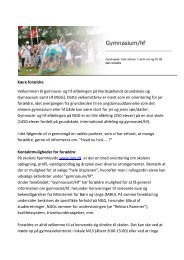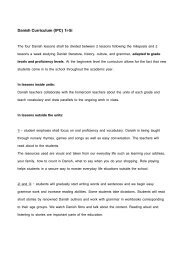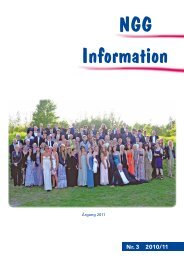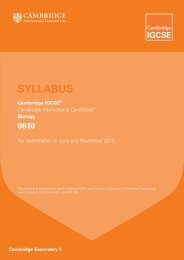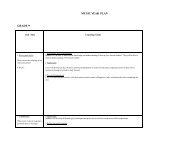Chemistry
Chemistry
Chemistry
You also want an ePaper? Increase the reach of your titles
YUMPU automatically turns print PDFs into web optimized ePapers that Google loves.
Syllabus aims and asessment objectives<br />
5.2 Assessment objectives<br />
The three assessment objectives in Cambridge IGCSE <strong>Chemistry</strong> are:<br />
A<br />
B<br />
C<br />
Knowledge with understanding<br />
Handling information and problem solving<br />
Experimental skills and investigations<br />
A description of each assessment objective follows.<br />
A: Knowledge with understanding<br />
Students should be able to demonstrate knowledge and understanding in relation to:<br />
1. scientific phenomena, facts, laws, definitions, concepts and theories<br />
2. scientific vocabulary, terminology and conventions (including symbols, quantities and units)<br />
3. scientific instruments and apparatus, including techniques of operation and aspects of safety<br />
4. scientific quantities and their determination<br />
5. scientific and technological applications with their social, economic and environmental implications.<br />
Curriculum content defines the factual material that candidates may be required to recall and explain.<br />
Candidates will also be asked questions which require them to apply this material to unfamiliar contexts and<br />
to apply knowledge from one area of the syllabus to knowledge of a different syllabus area.<br />
Questions testing these objectives will often begin with one of the following words: define, state, describe,<br />
explain or outline (see Glossary of Terms).<br />
B: Handling information and problem solving<br />
Students should be able, in words or using other written forms of presentation (i.e. symbolic, graphical and<br />
numerical), to:<br />
1. locate, select, organise and present information from a variety of sources<br />
2. translate information from one form to another<br />
3. manipulate numerical and other data<br />
4. use information to identify patterns, report trends and draw inferences<br />
5. present reasoned explanations for phenomena, patterns and relationships<br />
6. make predictions and hypotheses<br />
7. solve problems, including some of a quantitative nature.<br />
Questions testing these skills may be based on information that is unfamiliar to candidates, requiring them<br />
to apply the principles and concepts from the syllabus to a new situation, in a logical, deductive way.<br />
Questions testing these skills will often begin with one of the following words: predict, suggest, calculate or<br />
determine. (See the Glossary of Terms.)<br />
10 Cambridge IGCSE <strong>Chemistry</strong> 0620. Syllabus for examination in 2015.



